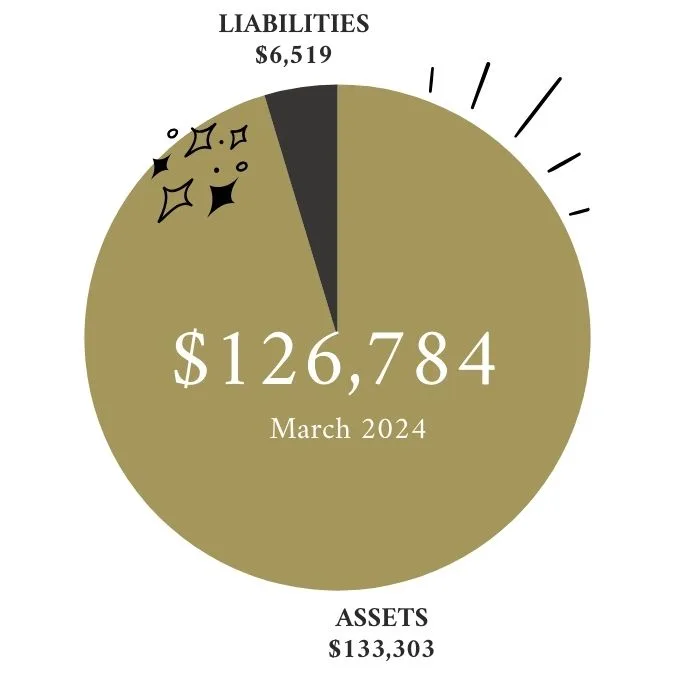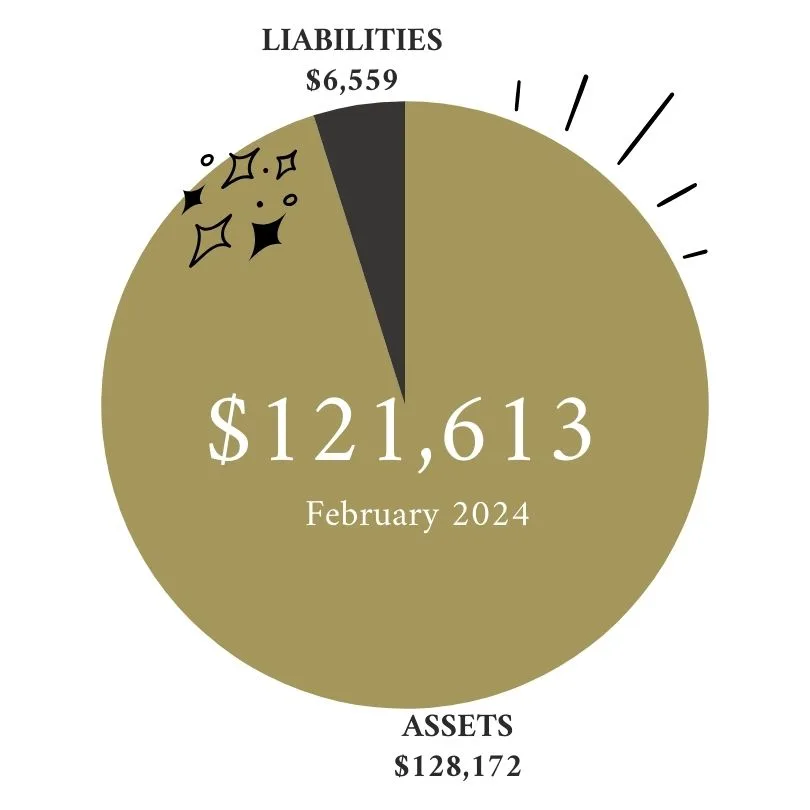Living below one’s means is an essential component of achieving financial success and leaving the rat race behind. It means making conscious choices about how you spend your money and prioritizing your financial goals over immediate gratification. Learning how to save money is an important step to a financially healthy life. In this article, we will explore the benefits of living below your means and offer practical tips for achieving financial success. If you haven’t read it already, discover how the five love languages can impact your love languages.
Benefits of Saving Money & Living Below Your Means
- Save Money: Learning how to save money before you need it is the key. By living below your means, you will spend less money on unnecessary expenses and save more money for your financial goals. This extra money can be used to pay off debt, build an emergency fund, or invest for the future. Investing means putting your hard-earned money to work for you, allowing it to grow over time. Nerdwallet has a great article on 22 actionable ways to save money.
- Reduce Stress: Financial stress can be a significant source of anxiety for many people. Living below your means can help reduce stress by providing a sense of financial security and peace of mind. Knowing that you have control over your finances and have a cushion for unexpected expenses can alleviate worries. Additionally, living below your means provides you with the freedom to leave a job that doesn’t fulfill you or make changes in your life that you wouldn’t have been able to otherwise, such as moving to a state that offers better services or amenities.
- Achieve Financial Independence: By living below your means, you can accumulate wealth and achieve financial independence. Financial independence means having enough money to cover your expenses without having to work a traditional job. This freedom allows you to pursue your passions and interests, unburdened by the need to work long hours to make ends meet. It provides you the opportunity to do what you were truly meant to do, without being tied down to a 40+ hour-a-week job on someone else’s schedule.
Tips for How to Save Money & Living Below Your Means
- Know Your “Why”: Understanding your purpose and motivation is crucial for learning how to save money and why you should try living below your means. Beyond the obvious reason of breaking the cycle that has overtaken our nation since the industrial revolution, it’s important to identify the real reason you get up every day. What are your long-term goals and aspirations? How does financial freedom contribute to your overall well-being and happiness? Knowing your “why” will help you stay focused and committed to living below your means.
- Create a Budget: Creating a budget is a fundamental step in living below your means. It helps you track your expenses and ensures that you are not overspending. Start by identifying your fixed expenses (such as rent or mortgage payments, utilities, and insurance) and your variable expenses (such as groceries, entertainment, and clothing). Allocate a specific amount of money to each expense category and stick to your budget. Regularly review and adjust your budget as needed to stay on track.
- Cut Expenses: One of the most effective ways to live below your means is to cut expenses. Start by identifying areas where you can reduce your spending. For example, you could reduce your food expenses by cooking at home instead of eating out, or you could minimize your transportation expenses by carpooling or using public transportation. Be creative and find ways to reduce your expenses without sacrificing your quality of life. Consider renegotiating bills or subscriptions, exploring affordable alternatives, or embracing minimalism.
- Avoid Debt: Living below your means also means avoiding debt whenever possible. Debt can be a significant source of stress and can hold you back from achieving your financial goals. Try to pay off any existing debt as quickly as possible, and avoid taking on new debt unless it is absolutely necessary. Prioritize saving and building an emergency fund to cover unexpected expenses, so you won’t have to rely on credit cards or loans in times of financial need.
- Increase Your Income: Another way to live below your means is to increase your income. Consider taking on a side hustle or part-time job to supplement your income. Look for opportunities to develop new skills or enhance existing ones that can lead to higher-paying job prospects. You could also ask for a raise or seek out better-paying job opportunities that align with your long-term goals. Increasing your income provides more financial flexibility and accelerates your journey toward financial independence.
- Prioritize Your Financial Goals: Living below your means means prioritizing your financial goals over immediate gratification. Identify your financial goals, such as saving for retirement, paying off debt, or building an emergency fund, and make them a priority. Allocate a portion of your income toward these goals every month. Be disciplined and avoid impulse purchases that can derail your progress towards your goals. Focus on the long-term benefits and the freedom financial independence can bring.
- Practice Self-Control: Living below your means requires self-control and discipline. It can be tempting to give in to immediate gratification and make impulsive purchases. Practice self-control by waiting 24 hours before making a purchase. This will give you time to reflect on whether the purchase is necessary and aligns with your financial goals. Consider the value the purchase brings to your life in the long run, rather than succumbing to short-term impulses.
- Find Support: Living below your means can be challenging, especially if your friends and family have different spending habits. Find support by surrounding yourself with like-minded individuals who share your financial goals. Join a personal finance community or attend financial workshops to connect with others who are also striving for financial success. Surrounding yourself with people who understand and support your journey will provide motivation, accountability, and helpful tips along the way.
- Embrace frugality: Living below your means often involves embracing a frugal lifestyle. Look for ways to save money and reduce expenses in all areas of your life. This could include finding deals and discounts, buying used items instead of new ones, or embracing DIY projects instead of outsourcing tasks. Embracing frugality can be a fulfilling and creative challenge that allows you to stretch your resources further.
- Set realistic goals: While it’s important to prioritize your financial goals, it’s equally important to set realistic and achievable goals. Break down larger goals into smaller milestones that can be achieved within a specific timeframe. This approach provides a sense of accomplishment along the way and keeps you motivated to continue living below your means.
- Review and adjust regularly: Regularly review your financial situation and budget to ensure that you are staying on track. Life circumstances and priorities may change over time, so it’s important to make necessary adjustments to your financial plan. Set aside time each month or quarter to assess your progress, make any necessary tweaks, and celebrate your achievements.
- Invest in financial education: To make informed financial decisions and optimize your resources, invest in your financial education. Read books, attend seminars, listen to podcasts, or follow reputable financial experts who can provide valuable insights and strategies. Expanding your financial knowledge will empower you to make better choices and navigate the complexities of personal finance.
- Practice gratitude: Living below your means doesn’t mean depriving yourself of joy or happiness. Practice gratitude for what you have and focus on the non-material aspects of your life that bring fulfillment. Appreciating the simple pleasures, cultivating meaningful relationships, and nurturing your overall well-being can contribute to a balanced and contented life.
- Track your progress: Keep track of your progress toward living below your means and achieving your financial goals. Use tools like spreadsheets, apps, or personal finance software to monitor your expenses, savings, and investments. Tracking your progress provides a sense of accomplishment and helps you identify areas for improvement or potential adjustments to your strategy.
- Be patient and persistent: Living below your means is a long-term commitment and may require patience and persistence. It’s important to stay motivated and remind yourself of the long-term benefits. Stay focused on your goals and remember that each small step you take contributes to your overall financial success.
Living below your means is a critical component of achieving financial success and leaving the rat race behind. By creating a budget, cutting expenses, avoiding debt, increasing your income, prioritizing your financial goals, practicing self-control, and finding support, you can live below your means and pave the path toward financial independence. Remember, it’s not just about accumulating wealth, but about designing a life that aligns with your values and passions outside the control we give society over our daily lives.








